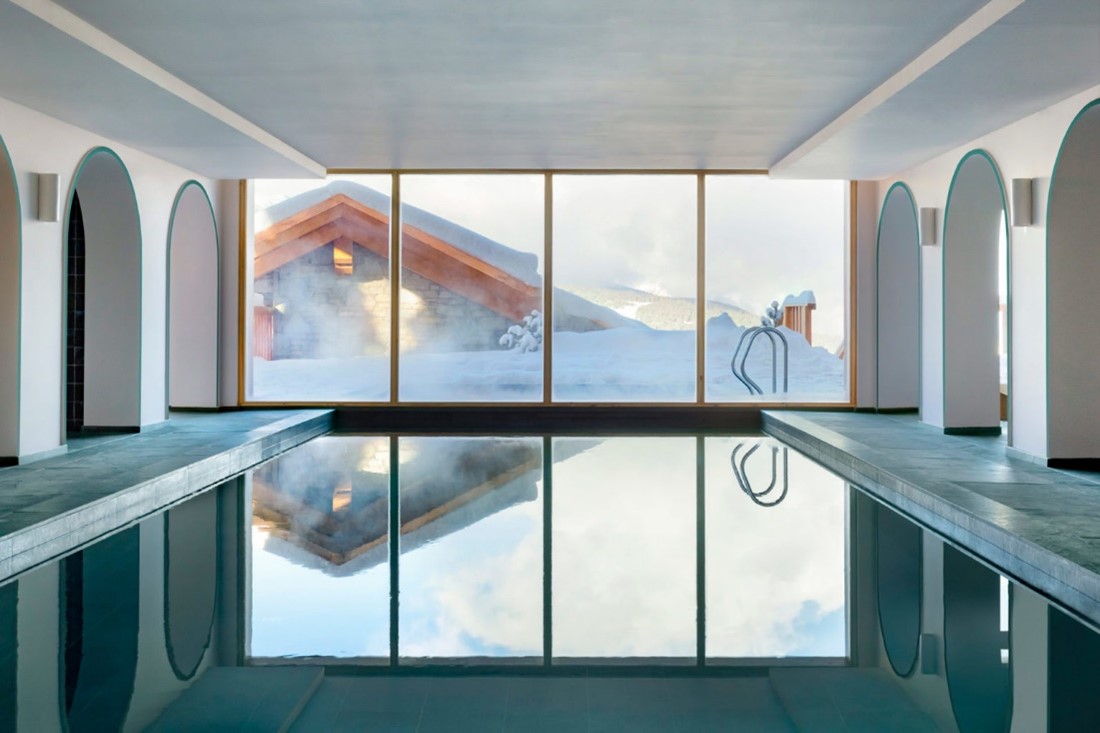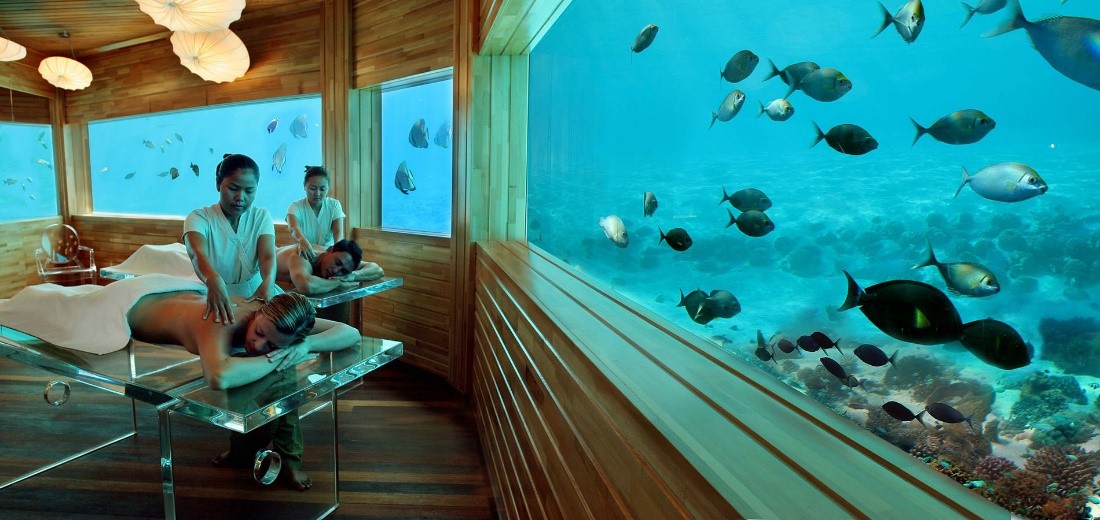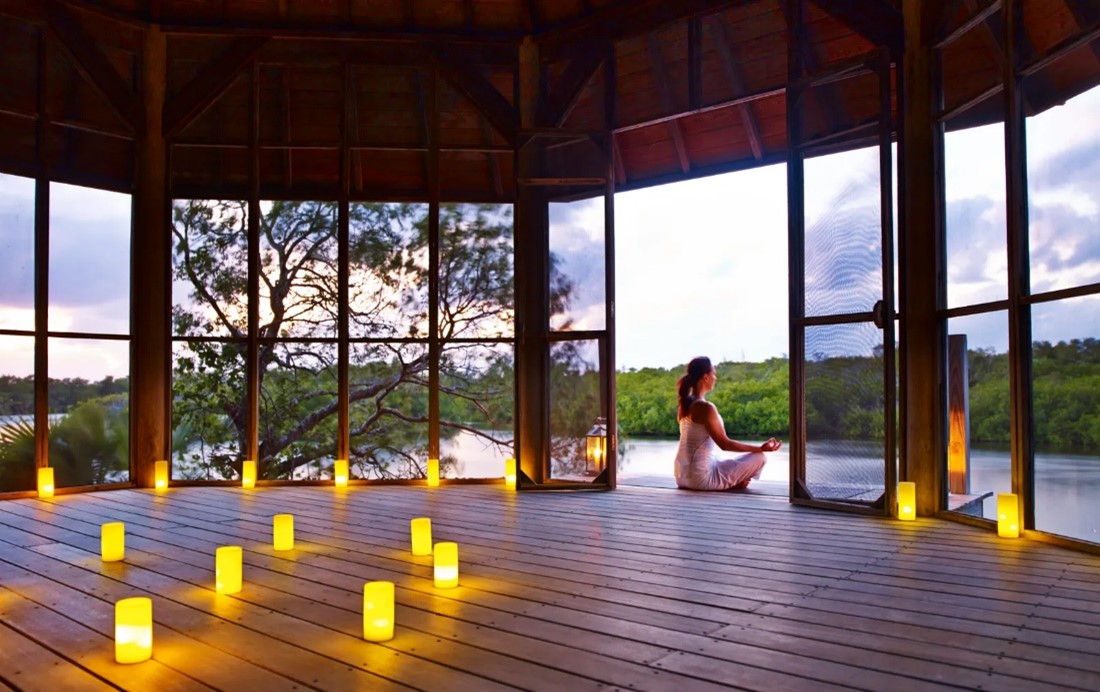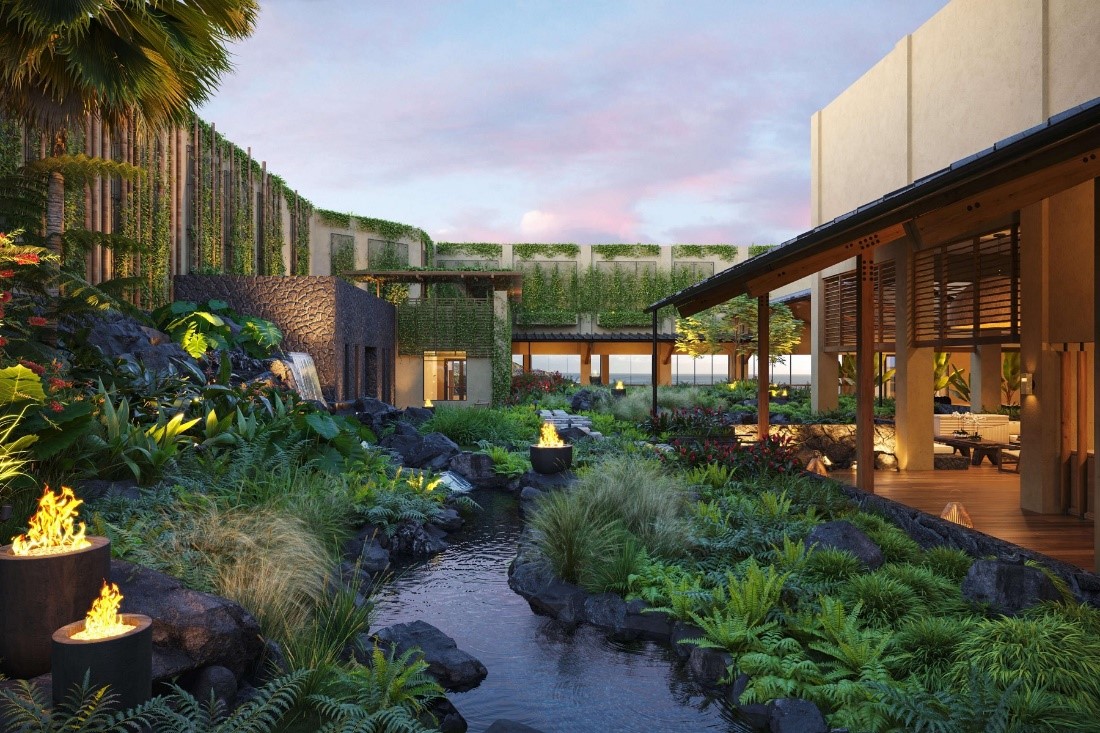The world of wellness and wellbeing in the hospitality industry
Wellness & Wellbeing: today vs tomorrow
Tomislav Sili
Research Analyst
PKF hospitality group
September 2023
In an ever-evolving hospitality landscape, staying updated with new trends is paramount. In the forthcoming article, we explore the concepts of wellness & wellbeing and discuss its implication for the hospitality industry. As you delve into the article, you'll uncover the influence of wellness in shaping guest expectations, diversified offering, and fostering guest loyalty. Will wellness offerings remain a premium commodity primarily accessible to high-paying clientele, or is the future set to make wellness a standard service in most hospitality establishments? Find out below.
The global rise of wellness and wellbeing offering in hotels has taken center stage. In 2019, the global wellness tourism market reached a record $720 billion before it was negatively impacted by the COVID-19 pandemic. However, the Global Wellness Institute projects that the global wellness tourism industry will reach US$1.3 trillion by 2025.
Trips based on wellness motives are experiencing a boom among consumers. According to the American Express 2023 Global Travel Trends Report, 73% of survey respondents reported that they are planning vacations around improving their physical and emotional health, 68% say they are choosing travel destinations close to nature to improve their mental clarity and 43% report having selected a hotel based on its spa and wellness amenities.
In late 2022, Hilton defined the “2023 traveller” and described its main characteristics.
Traveller in 2023
- will turn to travel for deeper, more engaging, human experiences and connections
- will recognize authentic travel as an essential part of their wellness routine
- will want to be taken care of personal wellbeing more than ever
- wants frictionless travel innovations that are both technology- and human-led
In addition to the growing consumer demand, hotels worldwide are increasingly acknowledging the potential and opportunities associated with enhancing their wellness-related offerings on their properties. This shift in focus towards well-being is not only a trend destined to pass but also a strategic move for many hospitality establishments.
Defining wellness & wellbeing
The following excerpt from “EUSAIR wellbeing tourism handbook” distinguishes between wellness and wellbeing tourism and aids in understanding the key difference between the two:
“wellbeing is associated with activity (i.e., training, physical activity, meditative practices), while wellness is a passive enjoyment and pampering (i.e. spa, beauty), often connotating luxury and high quality. In contrast to wellbeing, wellness is a more consumptive practice.”
The authors of this article recognize a crucial distinction between these two terms, understanding that both coexist to enhance the physical and mental quality of life for guests. However, it's important to note that this article will not delve into health tourism, which is typically associated with wellness.

Practical implications for hospitality industry
Wellness and wellbeing in the context of hospitality represents a multifaceted approach to guest satisfaction that goes beyond the traditional confines of accommodation. These offerings encompass a vast and diverse range of services and amenities thoughtfully designed to elevate the physical, mental, and emotional well-being of guests throughout their stay.
The rise of wellness and wellbeing is fuelled by multiple factors and the impact of the Covid 19- global pandemic on human behaviour and consequently on the hospitality industry should not be neglected.
Motives
Access to information has been facilitated by technological advancements making it easier for people to learn about health and well-being. Travelers now can research and discover the advantages of healthy lifestyles, prompting them to seek wellness-focused experiences during their journeys. In today's fast-paced world, modern life often leads to increased stress levels due to factors like work pressure, long hours, and constant connectivity. Consequently, many tourists view vacations as precious opportunities to de-stress and rejuvenate.
Nowadays, older travellers increasingly prioritize health and wellness to maintain their well-being and quality of life as they grow older. This trend reflects a broader shift toward preventive healthcare, with travellers, like many others, becoming proactive about their health, focusing on ways to prevent illness rather than solely treating it. The motivation behind this proactive stance is partly driven by the rise in healthcare costs, prompting individuals to invest in preventive measures. Some tourists perceive wellness-focused travel as a proactive approach to maintaining their health and potentially reducing future healthcare expenses.
Furthermore, celebrities and social media influencers play a pivotal role in promoting wellness practices and destinations, exerting substantial influence over the choices of their followers. Hence, hoteliers should not overlook the increasing influence of social media influencers in shaping this market. Notably, brands like Six Senses have already partnered with renowned influencers to produce compelling visual content for their wellness-oriented properties.
Additionally, environmental consciousness is growing, with tourists increasingly seeking destinations and accommodations that embrace eco-friendly practices and offer healthy, sustainable food options. Peer influence remains a powerful factor in travel decisions, as recommendations from friends and family members who have had positive wellness-focused experiences inspire others to explore this avenue. Lastly, media outlets frequently cover wellness trends and travel experiences, showcasing the numerous benefits of wellness-focused vacations and encouraging tourists to embrace these options.
The previously mentioned motives that contributed to the increased demand for wellness and well-being in general were also reflected in the hotel industry, which adapted to the needs of guests by developing specific services and products.
Wellness & wellbeing offering
In a world striving for the perfect work-life balance, wellness-focused vacations offer a respite from the daily grind, providing travellers with the opportunity to recharge physically and mentally. At the heart of many wellness-focused hotels are world-class spa facilities. These serene sanctuaries provide guests with a haven of relaxation and rejuvenation. From soothing massages to invigorating therapeutic body treatments, spa services aim to alleviate stress and promote physical wellness.
Prime example of a unique spa offering is Huvafen Fushi underwater spa & resort where “a world of infinitive wellness awaits” for their guests. Underwater treatment rooms offer a unique experience while relaxing.

Wellness-minded travellers seek opportunities to maintain their fitness routines even while away from home. In response, hotels have embraced well-equipped fitness centers. Here, guests can engage in tailored workout sessions, led by professional trainers, or partake in group fitness classes, fostering physical vitality.
Healthy and accessible dining options are crucial to hotels wellness offering. Dining is a fundamental aspect of the guest experience, and wellness-forward hotels recognize this. They offer a diverse array of healthy dining options, including organic, locally sourced ingredients prepared to culinary perfection. Nutrient-rich menus cater to various dietary preferences, promoting both physical health and gastronomic pleasure.
Mental and emotional well-being are equally prioritized. Mindfulness activities such as yoga and meditation classes are often available. These practices help guests find inner balance and serenity, fostering mental clarity and emotional tranquillity. Depending on the hotels micro-location, mindfulness activities can be organized on the seaside in time for a perfect summer sunset, or on a mountain range overlooking the snowy peaks in the distance.
PKF hospitality group can assist clients in designing and implementing comprehensive wellness and wellbeing products, ensuring that every aspect of a hospitality project aligns with the wellness-focused traveller's expectations.

Mindset change
The impact of the COVID-19 pandemic has heightened awareness of health and safety. In response, wellness offerings now extend to include contactless check-in and entry to spa and other hotel facilities, stringent cleanliness protocols, and open-air wellness experiences. This post-pandemic era blends luxury with a heightened emphasis on guest safety and health. Moving forward, a blend of pre-pandemic luxury and post-pandemic safety will likely dominate wellness and wellbeing offering in hospitality.
What sets wellness-oriented hospitality apart is its holistic approach. It acknowledges that guests seek more than just a place to rest; they yearn for an immersive experience that nurtures their whole being. These offerings aim to create a cocoon of holistic rejuvenation, embracing the individual's physical, mental, and emotional dimensions.
The pent-up demand during the period when Covid-19 pandemic significantly impacted daily life is now driving hotel guests to become more proactive in self-care, focusing on prevention rather than just curation. This also benefits hospitality accommodations who recognized the ever-changing needs of their guests.
Sustainability
At its core, wellbeing is deeply rooted in the promotion of both individual and environmental health.
It embodies sustainability, recognizing that achieving personal wellbeing is intricately connected to the wellbeing of the broader economic, social, and natural environment. Beyond mere sustainability, it comprehensively embraces both the internal (individual) and external (environmental) dimensions of human existence.
Wellbeing closely aligns with the principles of health and wellness tourism, as it places the individual's journey at its center. On the external front, it acts as a catalyst for fostering positive social change, creating an intrinsic link to the concepts of transformative, conscious, and responsible tourism.
Design & architecture
Incorporating biophilic design is essential for elevating wellbeing offerings. Biophilia, rooted in our innate connection to nature, can be harnessed to create a sense of security and wellbeing. This design approach, inspired by nature, improves guest experiences and boosts staff wellness and productivity.
A prime example is 1 Hotel Hanalei Bay, part of the 1 Hotels brand, has masterfully integrated biophilic design to become a holistic wellness destination, showcasing its transformative potential in hospitality.

Cultivating wellness & wellbeing: A Must-Have Focus for hospitality
Incorporating wellbeing and wellness offerings into a hotel's services offers significant advantages to hoteliers. From one perspective, it enables hotels to expand their services, catering to a wider range of guests. This encompasses individuals looking for relaxation, stress reduction, and enhanced well-being, alongside the more conventional tourist clientele. However, from an alternative standpoint, establishing a dedicated spa resort assists in focusing on a particular guest segment and engaging with a specific niche audience.
Speaking of diversifying, developing a well-thought of and attractive spa centre could become a crucial factor in gaining competitive edge. It serves as a unique selling point, setting the hotel apart from its competitors.
Furthermore, these wellness services, such as spa treatments, yoga classes, and healthy dining options, represent more than just amenities. These are revenue generators that can significantly boost a hotel's profitability. Guests are often willing to pay extra for these experiences. The GWI reports that wellness tourists have deep pockets, spending 177% more than an average guest when traveling domestically, and 35% more when traveling internationally.
The provision of wellness services directly contributes to guest satisfaction. Satisfied guests are more likely to become repeat customers and enthusiastic advocates of the hotel, thereby fostering guest loyalty. Wellness programs and facilities also have the potential to extend guests' stays. Activities like wellness retreats or fitness programs can encourage guests to prolong their visits, fully engaging in these enriching experiences.
Conclusion
Wellness and wellbeing in hospitality symbolize a dedication to guest-centric experiences that go beyond the ordinary. These offerings provide a pathway to optimal physical vitality, mental serenity, and emotional balance, enriching the guest's journey and leaving them with cherished memories of a truly rejuvenating stay. This leaves a lasting positive impression and significantly increases the likelihood of return visits.
Wellness tourism, driven by an increasing awareness of wellbeing, presents an opportunity for hoteliers to align with this market shift. This strategic alignment taps into a market that shows no signs of slowing down according to available statistics. Promoting wellbeing aligns with a hotel's responsibility to promote healthy living. It enhances community relations and bolsters corporate social responsibility efforts, contributing positively to the hotel's reputation.
In summary, the integration of wellbeing and wellness into hotel services not only caters to evolving guest preferences but also brings considerable financial benefits and a competitive edge in the hospitality industry. In the future, we envision certain wellness and wellbeing amenities becoming standard (default) services included within most hotel stays, rather than additional charges for guests.
PKF hospitality group's in-depth knowledge of the hospitality, tourism and leisure industry, combined with its expertise in finance and consulting, positions it as the ideal partner for clients looking to excel in the wellness and wellbeing tourism sector. By aligning with industry trends, global synergies, and past experiences, PKF hospitality group can help clients not only meet but exceed the expectations of the discerning wellness traveller, ultimately driving success in their wellness-related projects.